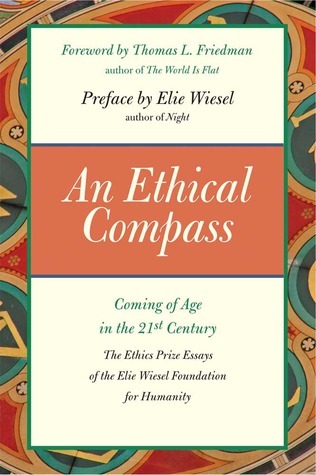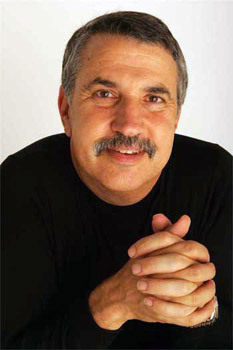
Author

Thomas L. Friedman is an internationally renowned author, reporter, and, columnist—the recipient of three Pulitzer Prizes and the author of six bestselling books, among them From Beirut to Jerusalem and The World Is Flat. Thomas Loren Friedman was born in Minneapolis, Minnesota, on July 20, 1953, and grew up in the middle-class Minneapolis suburb of St. Louis Park. He is the son of Harold and Margaret Friedman. He has two older sisters, Shelley and Jane. In January 1995, Friedman took over the New York Times Foreign Affairs column. “It was the job I had always aspired to,” he recalled. “I had loved reading columns and op-ed articles ever since I was in high school, when I used to wait around for the afternoon paper, the Minneapolis Star, to be delivered. It carried Peter Lisagor. He was a favorite columnist of mine. I used to grab the paper from the front step and read it on the living room floor.” Friedman has been the Times‘s Foreign Affairs columnist since 1995, traveling extensively in an effort to anchor his opinions in reporting on the ground. “I am a big believer in the saying ‘If you don’t go, you don’t know.’ I tried to do two things with the column when I took it over. First was to broaden the definition of foreign affairs and explore the impacts on international relations of finance, globalization, environmentalism, biodiversity, and technology, as well as covering conventional issues like conflict, traditional diplomacy, and arms control. Second, I tried to write in a way that would be accessible to the general reader and bring a broader audience into the foreign policy conversation—beyond the usual State Department policy wonks. It was somewhat controversial at the time. So, I eventually decided to write a book that would explain the framework through which I was looking at the world. It was a framework that basically said if you want to understand the world today, you have to see it as a constant tension between what was very old in shaping international relations (the passions of nationalism, ethnicity, religion, geography, and culture) and what was very new (technology, the Internet, and the globalization of markets and finance). If you try to see the world from just one of those angles, it won’t make sense. It is all about the intersection of the two.”